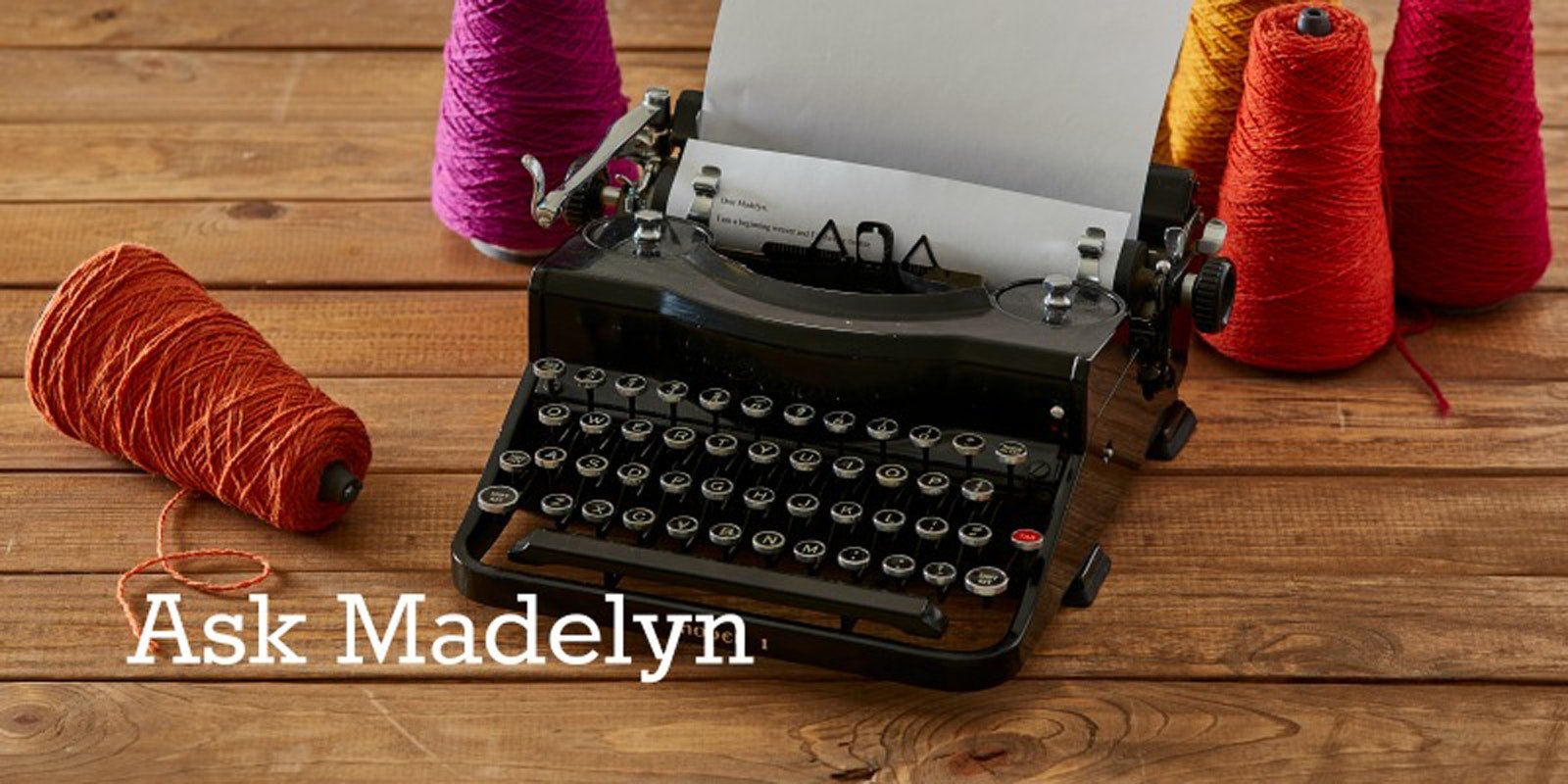Dear Madelyn,
We understand that when the fell line at the selvedges starts smiling, our selvedge warp threads are too loose. But when this happens mid-project, is it better to weight them at the back or tuck stuff into the offending areas on the cloth beam? And what can we do better from the start to prevent this tension issue from happening at all?
––Karen Donde and Regina Phalanges
Dear Karen and Regina,
Usually, the "smile" (and concommitant loose selvedge threads) have two causes that are connected to each other. First, the warp has not been wound tightly on the warp beam. Second, there has been draw-in on the edges of the warp. Here is how the two are related. When you have draw-in, the edge threads crowd more closely together. The warp sett becomes closer there, making it harder to pack in the weft at the same density on the edges as in the center of the fabric. So, the weft begins to build up on the edges. As it does this, the beater, in order to pack in the weft sufficiently in the center, hits the fell at the edges first and harder, yanking on those warp threads. As a result, if they haven't been wound tightly on the beam, they are pulled more tightly around the beam, giving them slack between the beam and the fell, i.e., they get loose.
The solution is two-fold: always wind the warp tightly on the beam and do whatever you have to to avoid draw-in (make sure there is sufficient weft angle in every shed and, when necessary, use a temple).
Now, what to do mid-project. The problem is that if you already have draw-in, simply weighting the threads is not going to change that. But you might make it through the project if you add weight to the loose threads (this is easier than trying to stuff the fabric just so at the other end and will also allow some necessary give to continue to operate on those threads when you beat). But my true advice is: Don't let this happen in the first place. And thank you for a great question!
––Madelyn

